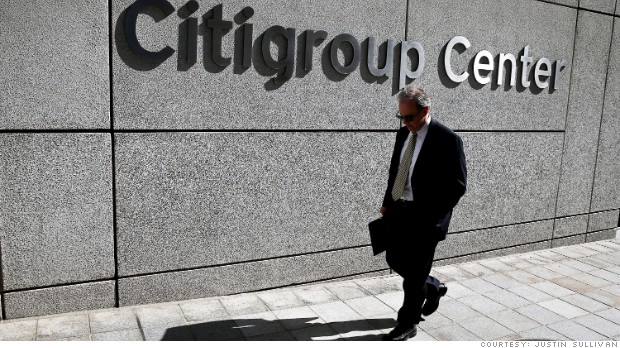Apple (NASDAQ: AAPL ) has had two runs as the dominant player in the K-12 education market. In the late 1980s the Apple II was the first computer many students and teachers ever used, and in recent years the iPad has played an important role in the classroom.
Microsoft (NASDAQ: MSFT ) , of course, has its place in classrooms as well. Since the price of a PC has always been lower than the price of a Mac, the Windows maker managed to carve out a niche in schools by default.
Now, however, Google (NASDAQ: GOOG ) (NASDAQ: GOOGL ) has made growing its share of the education market a priority and the strategy is working. Google's Chromebooks are increasingly popular in schools. To capitalize on this momentum, the search giant now offers an impressive array of free tools for education.
This may not have a huge impact on the company's bottom line in the short term, but it's making it so that many young Americans are having their first computer or computing device experience in the Google ecosystem. That coupled with the fact that Chromebooks generally cost less than machines running Windows or Apple's iOS, while much of the "software" for them is free, could lead to a generation that grows up with a different definition of what a computer is.
Apple and Microsoft should be very scared about that.
GeekWire recently asked some kids "Who's better: Apple, Microsoft, Amazon, or Google?" Source: Geekwire
What is Google doing?
In addition to offering Chromebooks, which look like laptops and have full keyboards, Google is offering a variety of freebies to educators. The Google for Education site deftly uses free tools as a way to push schools toward adopting Chromebooks. These tools include unlimited storage for anyone with a Google for Education account (business users pay for the same thing) and Vault, an app for administrators.
"Vault fits on top of all Google Apps, so you can archive all the data flowing through -- Drive files, docs, emails -- and do searches across all of them for specific text strings," Google Education Product Manager Ben Schrom told EdSurge. "A school admin could use it to investigate abuse or bullying."
Like Google has done for regular folks with its suite of productivity apps that serves as an alternative to paid products including Microsoft Office, it's doing for educators with Google for Education. Hook them in with decent, or even good, free products, then leverage their level of comfort in that system to sell devices which work well specifically with those apps.
How much of the market does it have?
At the close of the third quarter of 2013 Chromebooks still lagged behind Apple iPads (43%) and Microsoft Windows-based machines (28%) in the education market according to Futuresource Consulting, but Google's 19% market share represents a meteoric rise. In 2012 Chromebooks had less than 1% of the market, The Wall Street Journal reported.
It appears that much of Google's growth has come at Microsoft's expense since Windows' share was 47.5% for the same period a year earlier. That's something Microsoft has clearly taken notice of. The company has not only dropped the price of Windows for its OEM partners in order for them to be able to offer price-comparable devices, it has also run commercials pointing out the shortcomings of Chromebooks.
An extended version of the Microsoft ad. Source: YouTube
That strategy may not be working as research firm Gartner predicts that overall sales of Chromebooks "will reach 5.2 million units in 2014, a 79% increase from 2013." Gartner estimates the education sector accounted for nearly 85% of Chromebook sales in 2013.
Can Google keep it up?
Using the education market to launch Chromebooks is a sound strategy. Apple has always been vulnerable due to price and Microsoft has never seemed especially focused on educators. By offering them to schools and supporting them with tons of free apps and software, Google has actually turned the weakness of the Chromebook into a strength.
In a school, one of the challenges of handing a student a Windows-based laptop or an iPad is that they can be used for so many things other than their intended educational purpose. Chromebooks are limited-functionality devices, which makes them easier to control. They also are largely cloud-based, which makes supporting them with less IT help much easier.
Apple has always sold high-end devices at top prices. That strategy will likely see the company maintain some market share by being "best in class," or at least being perceived that way, but that share will slowly erode as good-enough devices work their way in. Microsoft however has a bigger problem since its devices are not perceived as the best, the cheapest, or the easiest-to use, which has led to a rapid fall once a well-priced option came along.
Microsoft is on the right track in making sure there are lower-priced Windows 8 devices on the market, but the company may have waited too long. Microsoft left the door open for Google and it may be hard to close it.
Apple Watch revealed: The real winner is inside
Apple recently revealed the product of its secret-development "dream team" -- Apple Watch. The secret is out, and some early viewers are claiming its everyday impact could trump the iPod, iPhone, and the iPad. In fact, ABI Research predicts 485 million of this type of device will be sold per year. But one small company makes Apple's gadget possible. And its stock price has nearly unlimited room to run for early in-the-know investors. To be one of them, and see where the real money is to be made, just click here!
 Bummer. Bonuses are shrinking. NEW YORK (CNNMoney) Citigroup traders got bad news this week -- their coveted bonus checks are going to be smaller this year.
Bummer. Bonuses are shrinking. NEW YORK (CNNMoney) Citigroup traders got bad news this week -- their coveted bonus checks are going to be smaller this year.  Here's why you should ask for a raise in 2015
Here's why you should ask for a raise in 2015